Pricila is terrified her mom will be taken.
Edna told her best friend she’s scared ICE agents will come to their school.
Juana keeps asking where her stepdad went.
Meet these children of small towns in Mississippi. They are teenagers and toddlers. And for days, they’ve been asking questions no one here knows how to answer.
How will we pay our rent now?
Will I ever see my dad again?
Will I be next?
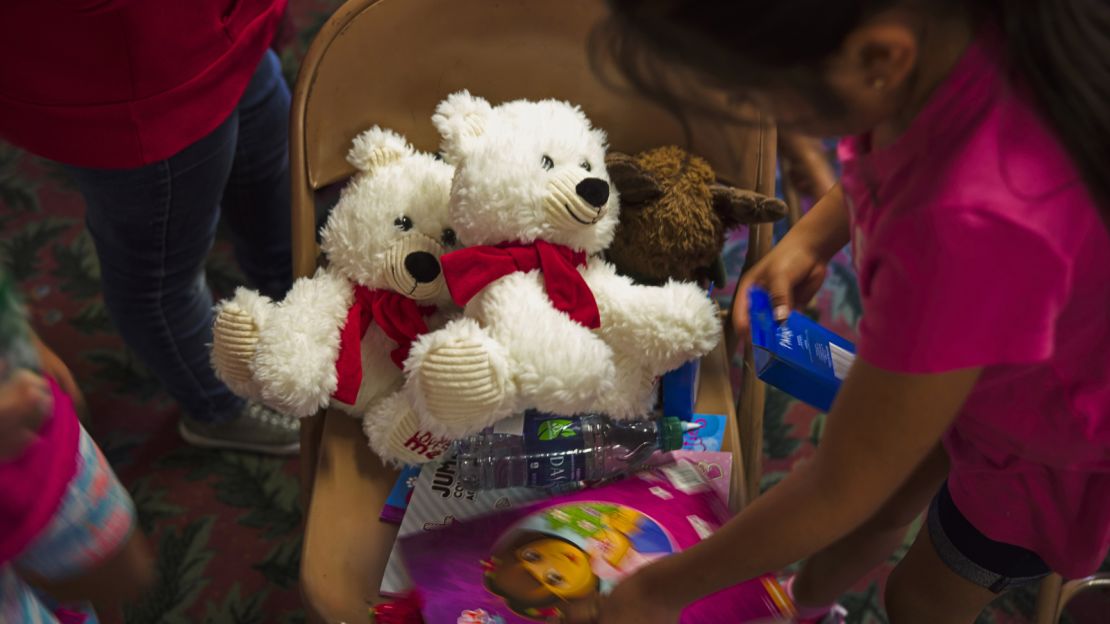
On Wednesday, helicopters hovered near their homes and hundreds of federal agents surrounded the poultry plants where their parents work, rounding up nearly 700 undocumented immigrants at seven sites.
Federal officials touted the raids as a historic sweep. And they warned their crackdown is far from finished.
“I want people to know that if they come into the United States illegally, they’re getting out,” President Trump told reporters Friday. “They’re going to be brought out. And this serves as a very good deterrent.”
As videos of heartbroken children begging for their parents’ release flooded America’s airwaves, critics slammed the raids as yet another cruel immigration policy punishing kids for political gain.
The next day, officials announced some 300 undocumented workers who’d been detained in the operation were released on humanitarian grounds – many of them parents who were reunited with their children. The officials have pushed back against accusations they were deliberately harming children, stressing that they went out of their way in cases where both parents had been detained to make sure to make sure one of them was released.
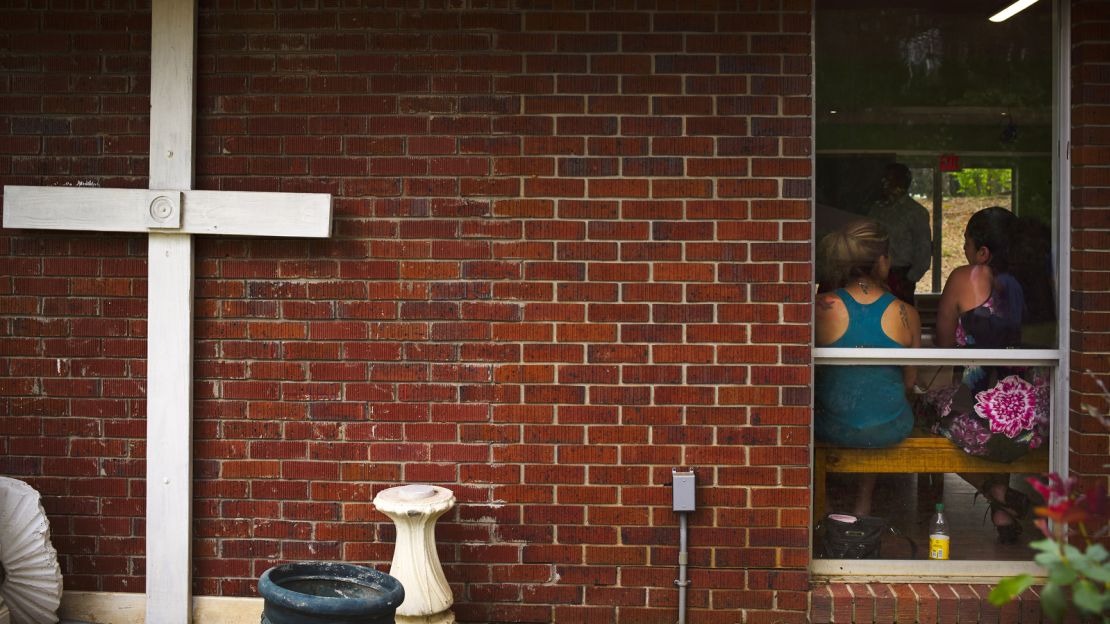
But those reassurances brought little comfort to this part of central Mississippi, where some restaurants and stores now sit eerily empty and church meeting halls are packed with people desperate for answers.
In an uncertain time, only one thing seems certain: This is just the beginning.
“The nightmare isn’t over,” says Tony Caldwell, a licensed clinical social worker who’s spending the weekend leading trauma counseling sessions for children here.“Trauma is a lifetime journey. And the journey started in the past 48 hours for some of these kids, and it’ll be with them for the rest of their lives in some way.”
She says her school isn’t the same
Pricila Mateo has been struggling to sleep. Her mom was released Wednesday night. But the 16-year-old says she’s haunted by details her mom told her about the raid at the Peco Foods plant where she worked in Canton, Mississippi. And she’s even more frightened that at any moment her mom could be taken again – and that she won’t be able to do anything to stop it.
She rattles off details about the raid like she lived them herself: how there was nowhere to hide, how a few people were so afraid that they fainted, how others’ feet were tied so closely together when federal agents escorted them to buses that they had to take baby steps and could barely climb the stairs.
It is a scene she has replayed in her mind over and over since she heard her mom describe it.
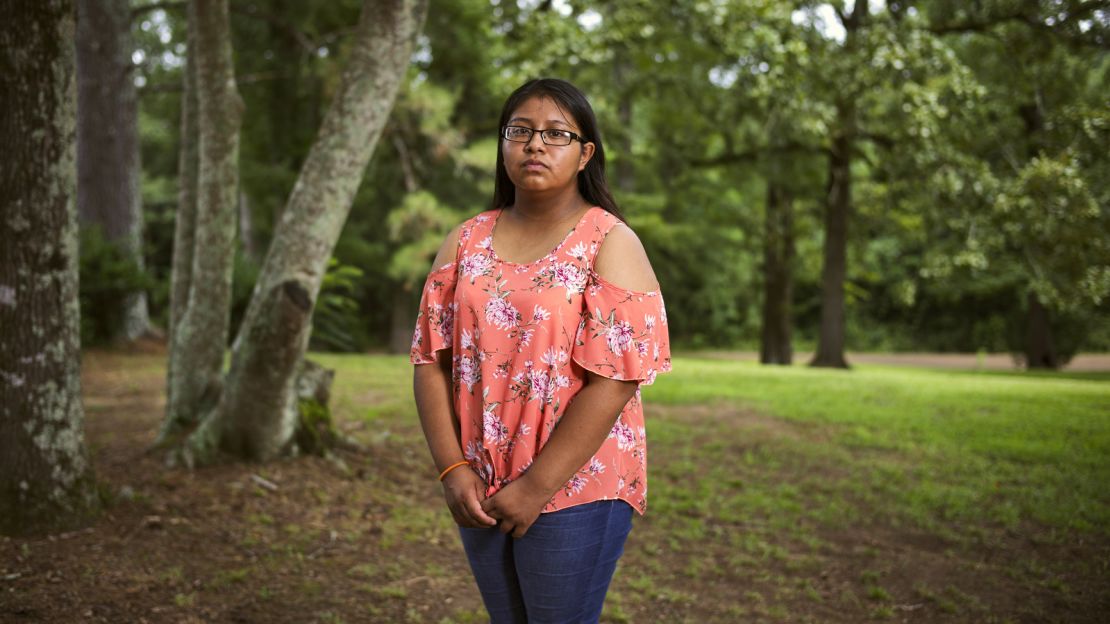
“They treat animals better than they’re treating my parents and other parents. They should be treated better than that,” she says. “They’re just trying to live. They’re just trying to get things for their children.”
Pricila says her mom has lived in the United States for 19 years. All four of her children were born in the US, and she’s pushing them to get the education she never got in Guatemala.
Pricila is trying. She went back to school on Friday even though it was tough. She didn’t want to miss another day.
But things felt different.Kids who used to be talkative seemed quiet and withdrawn. A friend wasn’t there when the teacher called attendance in their 7th-period anatomy class. She texted him that night to ask where he was.
“I don’t want to go to school anymore. I don’t want to go somewhere without knowing where my mother is,” he replied. “I’m scared that they may not let her go.”
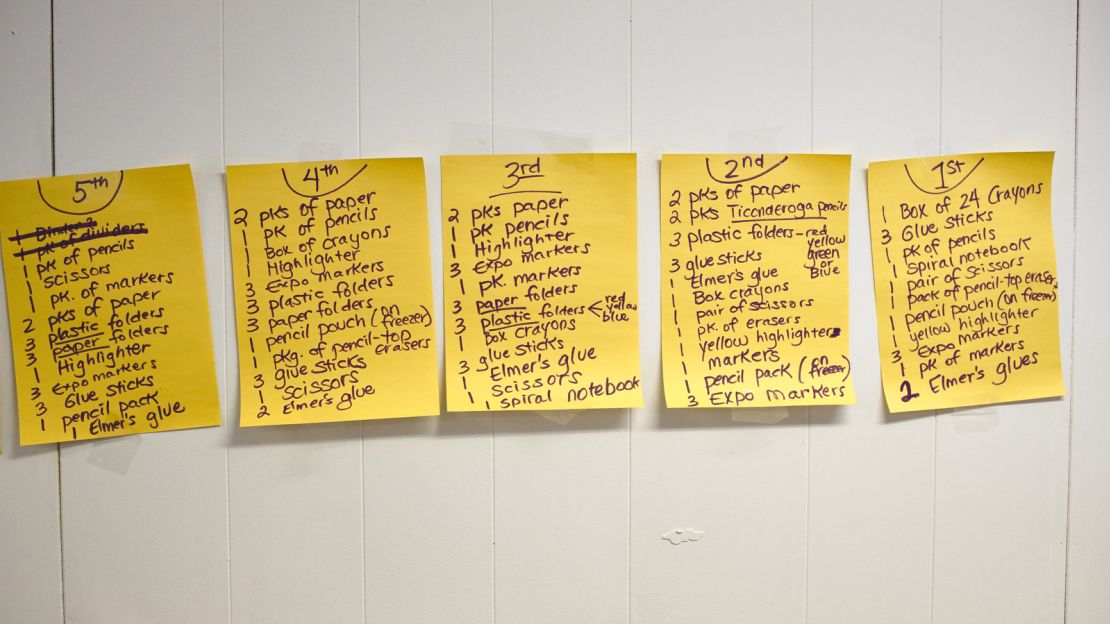
Pricila says her life has changed, too. The day her mom was taken, she scrambled to help her dad take care of her three siblings and her own daughter. Yesterday her mom, worried she’ll be detained again, told Pricila she needs to learn to cook more things in case it falls to her to feed the rest of their family.
“So I’m taking up the responsibility,” Pricila says. “I’m trying to learn as much as I can from her before anything bad happens to her.”
He says kids’ grief is ‘off the charts’
Tony Caldwell has spent decades helping traumatized children – many of whom were abandoned or orphaned.
“This is even worse in some ways,” the social worker says on a break between counseling sessions at a Mississippi church.
“The level of grief in the group work I just did, it’s off the charts – as much grief as I’ve ever been in the room with. Because there are just so many reasons to grieve. It’s so fresh, and it’s so not over.”
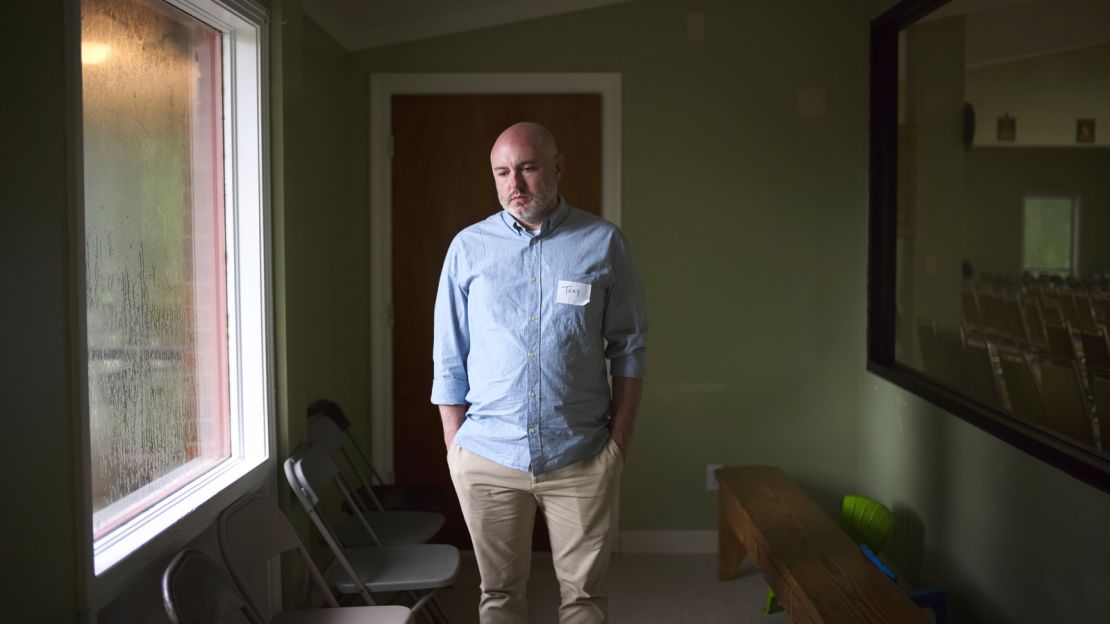
In addition to their fears about what could happen to their families, he says, children are sharing stories of being bullied at school because of their backgrounds.
“Some of these kids have been going back to school trying to keep some kind of rhythm and normalcy, and they’re being bullied and mistreated there. … They’re not safe anywhere,” he says. “You know some kids are hiding in their house, Anne Frank-style, right now because they’re so afraid to leave. The trauma is manifesting in countless ways here.”
She cried on the phone with her best friend
Edna Perez, 14, clutches a white stuffed teddy bear that says “Jesus Loves Me” as she thinks about the last time she heard her dad’s voice, about how she may never see his little red car in their driveway again, about how she’d laugh when he chased her and her little sisters around the house.
She’s only spoken on the phone once with him since he was detained. She panicked when she heard a guard telling him to say “bye-bye.” She shouted in the phone to tell him not to sign anything. She’s worried he didn’t hear her.
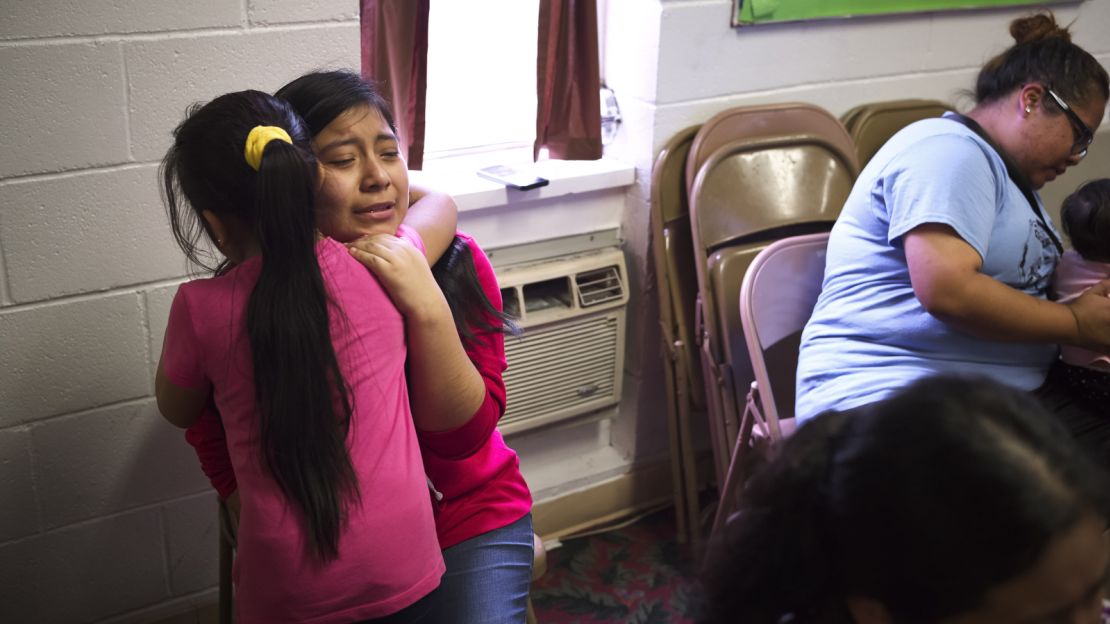
“I just really want my dad to come back,” she says. “He does everything. My mom doesn’t know how to drive. She doesn’t know what to do right now. My dad knows. He takes us to the nurse if we get sick. He takes care of us all the time.”
Edna and her best friend, Emily, have always had a lot in common. This week, they shared something they never wanted to.
“She called me, and then she told me, ‘My mom was taken away.’ Then I told her, ‘my dad was taken away.’ We were crying together,” Edna recalls. “I told her, ‘Maybe don’t go to school. Maybe the ICE people are going to go to our school. They might take us, too.’”
He’s struggling to console his flock
On a rainy weekend afternoon, the priest at St. Anne Catholic Church in Carthage greets parishioner after parishioner streaming into his church for help.
Today, many have come here looking for lawyers to help with their loved ones’ cases.
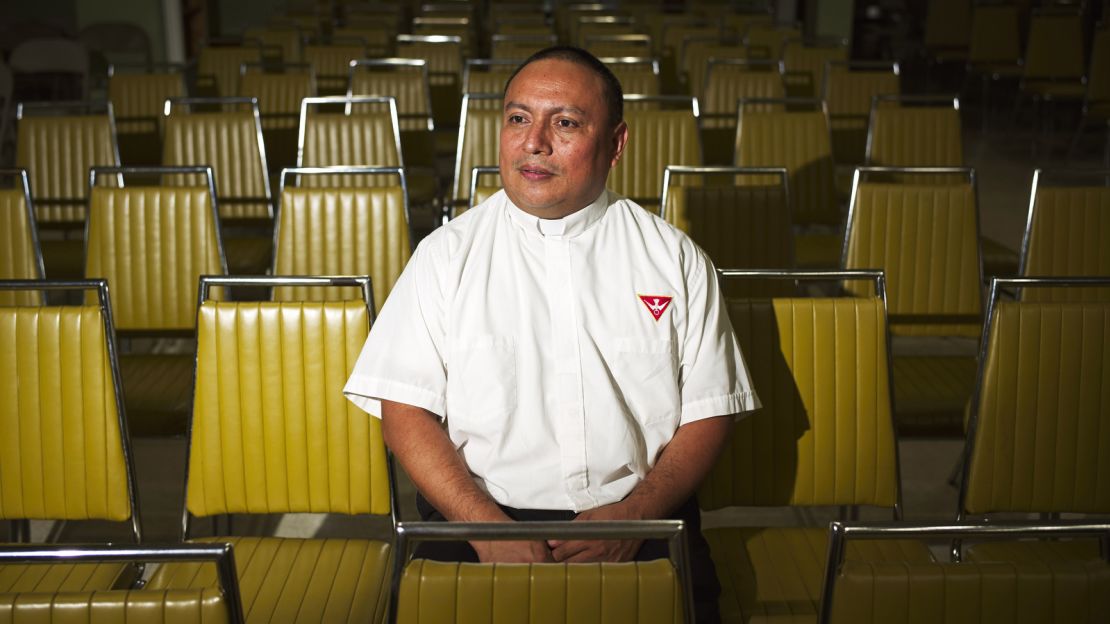
“How are you?” Father Odel Medina asks a woman who’s just arrived.
“Afraid,” she tells him.
For days, Medina has been struggling to find the words to console his congregation. He thinks the government sees them only as statistics. But he knows who they are, how hard they have worked and how much they now are suffering.
He describes what’s unfolding in his community with terms generally used in the aftermath of weather emergencies.
“It’s a disaster,” he says.
But unlike a hurricane response, there’s no telling when this crisis will end. He tells his parishioners, after this storm, the calm will come.
But seeing so many children crying, he says, has been particularly difficult to bear.
“How can you bring them hope,” he wonders, “when they’re in such pain?”
A prosecutor says the government has no choice
Magdalena Gomez Gregorio’s voice was heard around the world. After her father was detained last week, the 11-year-old pleaded on camera for the government to have a heart.
“I need my dad. … He’s not a criminal,” she said, sobbing as she waited with other children at a local gym that offered food and shelter on the day of the raids to children whose parents had been taken.

The federal prosecutor who announced the raids last week on Friday described the girl’s interview as “heartbreaking.” But he maintained authorities had no other choice.
“As a father of six children, it breaks my heart any time a child is affected by their parent’s illegal activities. And we see this all the time as law enforcement, whether it be immigration or tax evasion or bank fraud or drug use,” US Attorney Mike Hurst told NPR. “But the laws are the laws, and our job is to enforce those laws. And while this young child’s interview is heartbreaking, that’s what we have to do.”
The girl’s mother told CNN she’s now scared to leave their family’s apartment. But she’s proud of her oldest daughter for speaking out. “She’s an intelligent girl,” she said. “She isn’t afraid.”
Her children keep crying
A Guatemalan flag hangs on the wall above the couch in a house in Forest, Mississippi, where Isabella Gregorio Alonzo is cradling her crying baby.
The 27-year-old mother was detained in the raids this week. So was her husband.
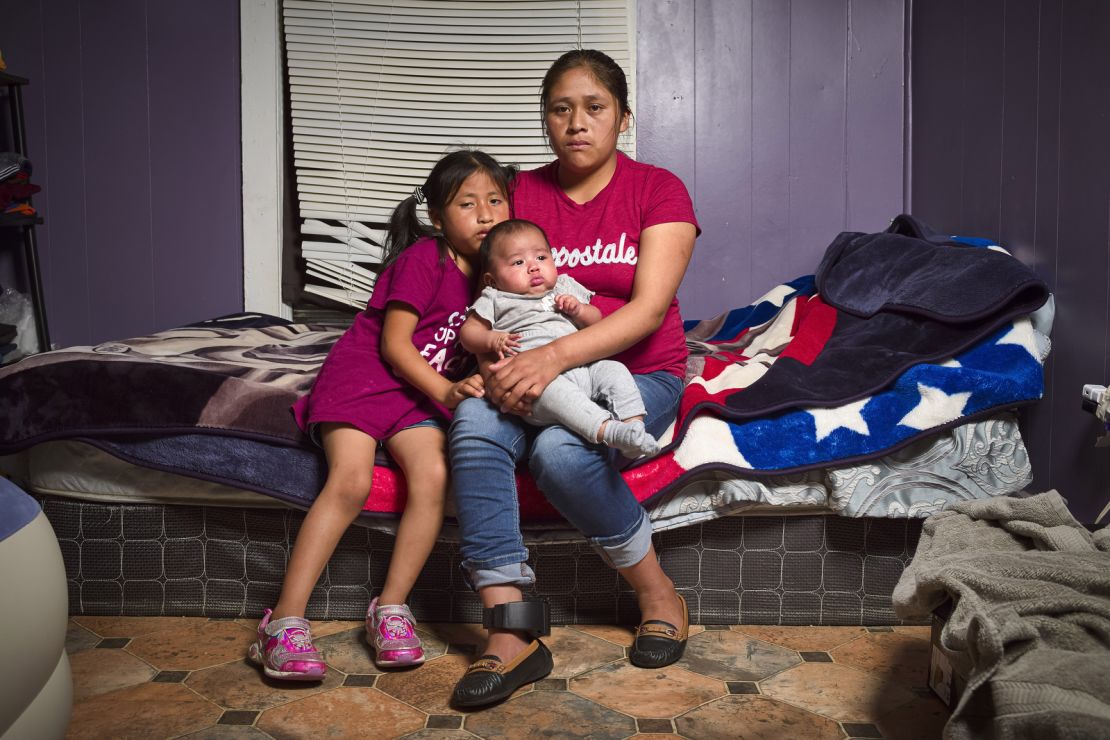
She was released later that day with a GPS monitor tethered to her ankle. He’s still behind bars, in a detention center 150 miles away, near the Louisiana border in Natchez, Mississippi.
Their daughter, Angelina, is just three months old. But Isabella thinks the baby can sense something is wrong. She’s used to her father holding her. Every time she cries now, Isabella thinks of how much she must miss being in his arms.
Her 7-year-old daughter, Juana, has been crying more, too. She keeps asking when her stepfather is coming home. Today she’s wearing a T-shirt that says, “Stand Up For Each Other.” Isabella is determined to fight for her family, but she isn’t sure how they’ll make ends meet.
“I am alone. I don’t have a job. … There is no money,” she says.
Isabella bursts into tears imagining what life is like now for her husband.
“I’m thinking of him,” she says, “day and night.”
While they wait for him to come home, her family is sleeping in a bed with an American flag blanket.
Isabella says she arrived in Mississippi about a year ago, hoping to escape threats in Guatemala and build a better life for her children.
This is not the life she imagined for them. And she fears there’s no way to fix it.
CNN’s Natasha Chen contributed to this report.

















